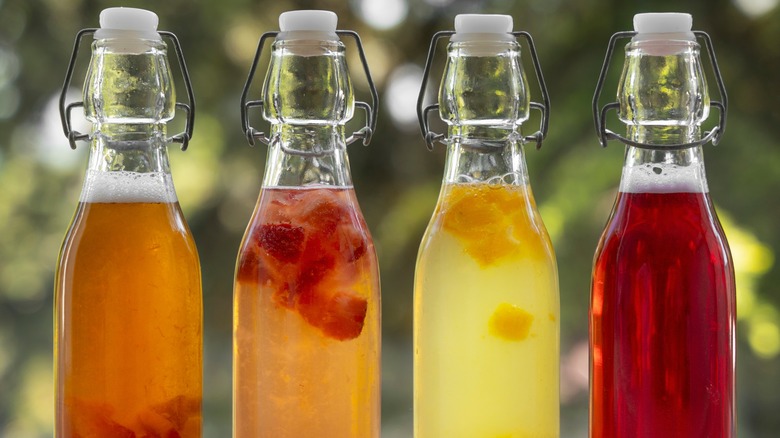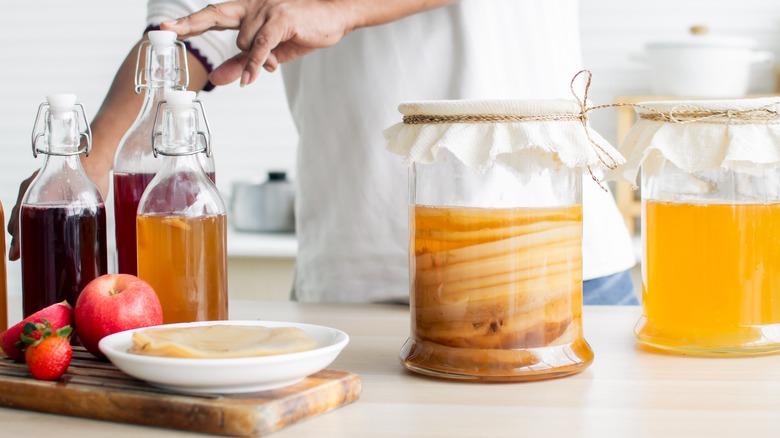Why Bottling Homemade Kombucha In Anything But Glass Is A Major Mistake
Strolling through stores like Whole Foods and Trader Joe's, you'll often see rows of kombucha bottles and may balk at the prices and immediately decide to brew your own bubbly tea. But, before you embark on the journey to homebrew your own kombucha, note that you'll have to invest in equipment such as glass bottles with airtight seals and at least one large glass jar. If you think you can use plastic bottles or containers for kombucha, think again. Bottling this effervescent beverage in anything but glass is one of the 25 mistakes to avoid with homemade kombucha.
Here's the reason why: Kombucha is fermented tea and a staple amongst the health-conscious, prized for its high probiotic content. It's fizzy, like lemon-lime sodas, but what makes kombucha bubbly and boozy is its yeast and bacteria content. Because kombucha takes time to ferment and is acidic, any harmful contents or contaminants in the lining of plastic and metal containers can eventually leach into the drink. This is not a problem with glass bottles, which don't degrade as plastic bottles do over time in an acidic environment. However, avoid ceramic bottles that have glaze or paint as those can leach into the kombucha too.
Always choose sturdy, rounded bottles with an air-tight seal
It's worth noting that many kombucha distilleries are now canning kombucha. These days, we commonly find canned kombucha next to bottled kombucha at the supermarket. Canning for commercial kombucha distillers is often less cost-prohibitive, as glass bottles are heavier and often costlier to ship. There is also a global glass shortage, so it may be more sustainable for distillers to turn to aluminum cans rather than glass bottles. That said, canning kombucha is more for those with industrial kombucha breweries and is not recommended for the everyday home kombucha brewer.
Thus, when making and caring for kombucha at home, it's best to use glass bottles. Look for high-quality, sturdy, and food-grade glass bottles and avoid bottles made with thin glass. A lot of gas and pressure can build up in the bottles as the kombucha ferments. It's also important to choose glass bottles with an airtight seal, like flip-top bottles.
The bottle's shape matters too. Square or rectangular bottles, like olive oil bottles, are prone to exploding when there's a high-pressure build-up, so choose rounded bottles instead. As glass bottles are transparent, store your bottled homemade kombucha in a dry, cool, and dark place away from the heat and direct sunlight. Following these tips, you'll have delicious, contaminant-free kombucha in no time.

